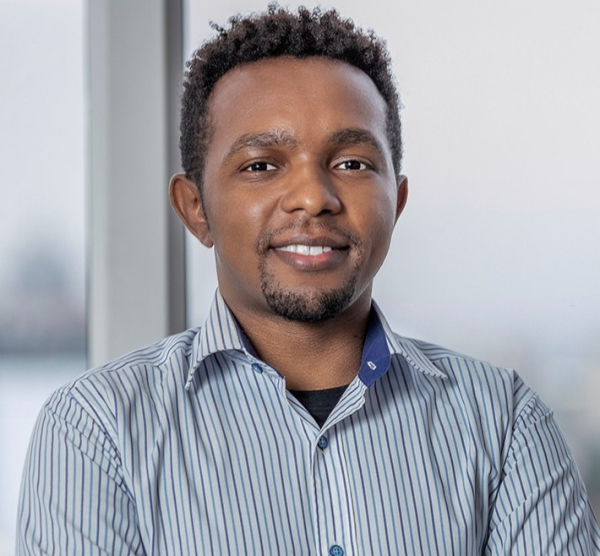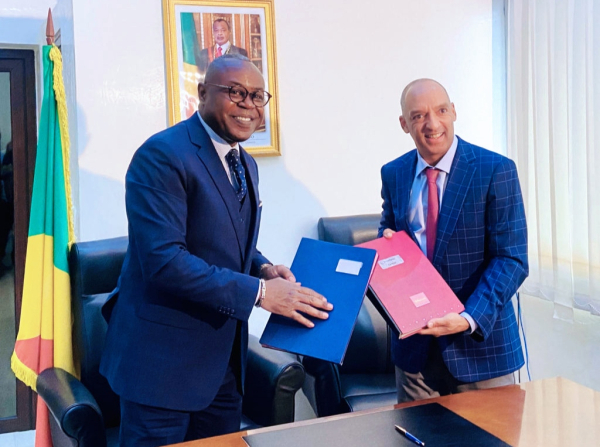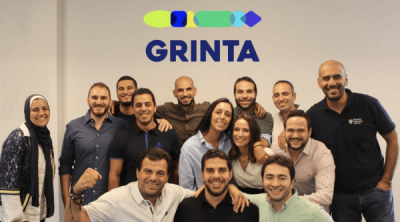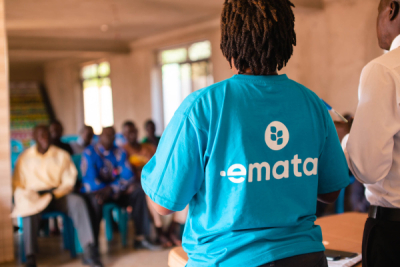The serial entrepreneur has already helped create five startups in Africa. His latest venture embodies his desire to build a new credit and trade infrastructure in Africa and emerging markets.
Kageni Wilson (photo) is a Kenyan entrepreneur and the co-founder/CEO of fintech startup Finplus Group. With the latter, he aims to help close the “massive $5-trillion credit deficit faced by SMEs in developing countries each year."
To achieve its goal, the startup developed Finplus, a digital finance and e-commerce software that provides three main services. First, it enables banks and micro-lenders to lend on a large scale. It also helps consumer goods companies digitize end-to-end sales by effectively transforming their supply chain into a demand chain. Finally, it unlocks access to an instant credit line for tens of millions of SMEs and individuals in emerging markets. It has already processed more than US$1 billion in transaction value in the Kenyan, Ugandan, Tanzanian, eSwatini, and South African markets. It has also enabled access to credit for more than 3 million SMEs and individuals.
"Today, our software helps an individual or small business access credit or transact with financial institutions and suppliers every 10 seconds. We have come a long way since processing our first transaction in April 2017 and it’s all thanks to our customers trusting us to manage their relationship with millions of end customers and over a billion dollars of value. It’s an enormous responsibility and one that gives us pride as an African company building in Africa for Africans," Wilson said in November 2022.
Since 2016, the latter is a mentor in KCB Bank Group's KCB 2jiajiri program. He is also an iHub Nairobi Outreach Ambassador and a member of the non-profit crowdfunding platform 1%Club’s team.
The serial entrepreneur also co-founded the education platform Usomi, in 2012. About one year earlier, he had co-founded cloud computing service Ionacloud after co-creating digital media production company Planetary Pictures in 2011.
From 2014 to 2017, he was the founding partner of AllenHark Group, "a collective of financial technology companies building plug and play software solutions for Financial Services delivery in East Africa."
Melchior Koba
The Republic of Congo is gradually making its way toward the complete digitization of its public services. To accelerate the process and reach its goals by 2025, the government is multiplying partnerships with international companies specializing in digital issues.
Canadian company Casimir Network signed Tuesday (Nov.22) a memorandum of understanding to support Congo in its digital transformation.
The MoU was signed by the Congolese Minister of Posts, Telecommunications, and Digital Economy, Léon Juste Ibombo (photo, left), and Jean Michel Casimir (photo, right), CEO of Casimir Network. It provides, among other things, the training of local talent on innovative technologies, the construction and operation of a data center that will host servers for blockchain services, the transfer of knowledge concerning the operation of the data center, and the development of cybersecurity and personal data protection programs. It also plans for support and research, and the development of the African Center for Research in Artificial Intelligence (Caria).
The memorandum aims to “help our partners create and operate the data center here in our country. Indeed, the country of a data center will allow our partners to support and assist us in the operationalization of Caria,” Minister Leon Juste Ibombo said.
Earlier this year, Congo launched an African Center for Research in Artificial Intelligence (Caria) which serves as a framework for in-depth research for students and other researchers on the continent. It is the result of cooperation between the Congolese government and the United Nations Economic Commission for Africa (ECA). Caria supports other major digital projects underway in the framework of Congo’s digital development plan, "Congo Digital 2025.”
The agreement between Congo and Casimir Network is expected to take effect in early 2023. This week, a site visit will be organized to verify the location of the future data center. "We hope everything will be finalized and we will launch operations by September 2023," said Jean Michel Casimir.
He added that the data center will be based on blockchain technologies since they are going for an ecological solution. “Congo offers green energy generated by a hydroelectric dam. We were looking for stability and we found it here,” he indicated.
Samira Njoya
According to the WHO, counterfeit medicines cause nearly 100,000 deaths in Africa each year. Grinta wants to remove this scourge by offering medicine traceability and authentication solution.
Egyptian digital pharmacy platform Grinta, announced Monday (Nov. 21), a US$8 million raise to develop its tech platform and accelerate its growth in the local market. The funds, raised during a seed round, were secured from Raed Ventures (Saudi Arabia) and NClude, an Egyptian FinTech fund managed by Global Ventures (Dubai).
"As we plan to expand our footprint in the main pharma hubs on the continent, we will also enable Egyptian and regional pharma manufacturers to further penetrate the US$50 billion African market," said Grinta co-founder and CEO Mohamed Azab.
According to the company's statement, Egypt’s US$6.3 billion pharmaceutical market (Softgroup) is the largest and fastest-growing in Africa. It has three major distributors and more than 3,000 wholesalers targeting 60,000 fragmented retail pharmacies. Nevertheless, the market is also affected by the shortage of pharmaceutical products that usually hit African countries (nearly half of Africa's population (1.1 billion people) lacks regular access to the most essential medicines).
Since its inception in 2021, Grinta has been working to reduce the drug shortage in Egypt by modernizing the pharmaceutical supply chain and empowering independent pharmacies. Its end-to-end platform provides access to the full range of traceable pharmaceutical and medical products from multiple suppliers, in addition to order fulfillment, demand planning, and inventory financing.
Thanks to the funds secured, it wants to scale its full-stack technology platform, expand its team and accelerate its growth in the Egyptian market. Within a year and a half of operation, the company has aggressively expanded across seven governorates in Egypt, with over 14,000 pharmacies registered on its platform, more than 100,000 orders delivered, and more than 14,000 stock management units.
Samira Njoya
The real estate and construction expert has founded two companies, in Nigeria, to contribute to the development of the local construction sector. His ventures have earned him the trust of several investors.
John Oamen (photo) is a Nigerian entrepreneur and project manager. He is one of the co-founders and CEO of CutStruct Technology Ltd, a proptech startup that wants to unlock the “next one million homes in Africa by improving the construction business environment.”
His proptech startup uses technology to change “how stakeholders buy, hire for, and manage their projects.” It developed LiveVend, a construction procurement platform that allows buyers, real estate developers, and contractors, to hire qualified suppliers. LiveVend also offers other much-needed services such as transportation, in-transit cargo insurance, and trade credit.
"We connect construction vendors to buyers. All the complex work takes place in the background. The vendor vetting, sorting out the appropriate logistics, ensuring the goods are insured, guaranteeing fulfillment and securing financing – these are the complex things we do in the background, while our users engage with a simple platform," Oamen explained in November 2022, while presenting LiveVend after a US$600,000 pre-seed round.
In 2010, John Oamen, an embodiment of the phrase "serial entrepreneur", founded Faultless Finish, a finishing, remodeling, and interior designing company. Since 2021, he is the executive director of PropTech Nigeria, a community of Proptech enthusiasts.
The real estate and construction expert entered the professional world, in 2005, as a sales executive for Auto Merchants, a construction materials dealer. In 2007, he joined the African infrastructure development company Greenfield Assets Ltd. as Chief Real Estate Broker. He worked there until the creation of Faultless Finish.
Melchior Koba
Although agriculture is a significant contributor to the economies of most African countries, the continent has no or just a few agricultural banks. This significantly impedes the development of the sector but, thanks to new technologies, entrepreneurs are stepping in to fill the void left by authorities.
Emata is a digital solution developed by a Ugandan eponymous startup. It allows farmers access to loans to invest in their farms. It also gives them the possibility to create an online business to sell their products.
"We invest in farmers and dare them to dream big. […] We install Emata on your cooperative or aggregator's computer and phone. Our local impact team trains your staff on how to use it. […]. The cooperative or aggregator uses Emata to register farmer deliveries, update prices, create payment schedules, and share daily SMS updates with farmers," the Emata platform indicates
The platform enables the collection of crucial data on new online business operations. Such data informs new decisions aimed at improving operating performance. It should also be noted that the startup uses credit scoring algorithms to identify good farmers and offer loans they can afford. According to Emata, these are "instant and affordable loans," that allows beneficiaries “to invest in the productivity of their farms.”
To date, the startup has supported 8,091 farmers, issuing 1,429 loans. In 2021, it was selected, along with 11 other startups, to participate in the third edition of CATAPULT: Inclusion Africa. This allowed Emata to gain visibility and strengthen its presence in the Ugandan market.
Adoni Conrad Quenum
Like almost every country, DRC is digitalizing every sector, including its justice system. The identification system to be built will greatly facilitate law enforcement agencies’ works in the countries.
The Democratic Republic of Congo (DRC) recently awarded a US$70 million contract to Israeli company Pangea to develop and operate an automated, centralized biometric criminal identification system (ABIS) that will identify individuals based on their biometric traits and build criminal records.
The database, which will include the biometric data of identified law offenders, will be accessible by 150 police stations nationwide. It will also have fingerprint and handprint-based crime investigation capabilities.
“Digital government services are essential to the countries’ long-term growth, especially those with tremendous economic potential like Congo.[…] Today, we’re able to advance with such a strategic project in a remarkably short period and achieve major transformation with solutions that have proven themselves around the world,” explains Uzy Rozenthal, Pangea’s executive vice president.
The project will be carried out under a public-private partnership model. It is the result of a decision by the government of Congo to promote the digitization of government services in the country. It adds to the other projects underway in the country in the framework of the National Digital Plan - Horizon 2025.
The partner selected for the project -Pangea-has been providing digital transformation solutions to businesses since its inception in 2018. It is also experienced in the implementation of biometric and IT systems for government agencies in several countries around the world.
"Pangea continues to develop capabilities and innovations in our areas of expertise, including new products for eKYC and Smart Border Control. These capabilities will become unique products in the next few months and generate significant revenue in the next few years," said Rafi Kaminer (photo), CEO of Pangea.
Samira Njoya
Over the past three years, she has provided quality fintech, edtech, and enterprise solutions in the Cameroonian market. Her startup has developed a payment solution that has become a reference means for tuition payment in secondary schools in Cameroon.
Ako Joelle (photo) is a Cameroonian computer scientist and entrepreneur. In 2018, the same year she graduated from the University of Buea with a Bachelor of Computer Engineering, she co-founded Innovative Clan (I-Clan), a Douala-based startup.
The startup, whose co-founders are all computer science graduates, commits to developing software that solves major social issues. With her team, Joelle -who heads I-Clan as the CEO- developed a payment platform that allows schools to collect tuition via local mobile payment methods while ensuring financial transparency and also tracking the funds collected. The solution can be used by parents with or without an internet connection, thanks to the USSD technology. Currently, it is the major platform used by most Cameroonian secondary schools to collect their tuition fees. The country’s examination boards also adopted it as the official means for exam fee payment.
Before embarking on the I-Clan adventure, Ako Joelle worked, as a front-end developer, for the job search engine Njorku Ltd. This year, she was selected among the female founders that will take part in the VC4A Venture Showcase 2022. In 2021, on behalf of I-Clan, she won the Hackathon PAK 2021 organized by the Port Authority of Kribi, Cameroon. Two years earlier, in Kenya, she was one of the finalists of the Daikin - Samurai Incubate Ideathon Airtech Bootcamp Africa. She was selected for the launch of the Youth Conneckt Africa initiative in Rwanda and invited to take part in the Google Sub-Saharan Africa Community Summit in Accra, Ghana.
Melchior Koba
Côte d’Ivoire currently has an important shortage of physicians, with 1.4 doctors for every 10,000 individuals. E-health solutions are therefore important tools that can help bridge the gap. In that context, Skanmed wants to help by leveraging new technologies.
Skanmed is an e-health solution developed by Ivorian start-up Skan Technologies, launched in 2011. It allows users to remotely consult doctors, notably general physicians, pediatricians, and cardiologists.
Once registered on the e-health platform, users can search for doctors by specialty or by name. They can click on each medical practitioner suggested to check their information, register on their waiting list, or request an urgent video consultation.
In addition to the online consultations, the healthtech solution also offers home service. It has a team of doctors and nurses ready to provide home care 24 hours a day.
In 2021, Skanmed was the winner of the CGECI’s Grand Prix Business Plan Competition. The healthtech also won the first innovation prize awarded by the Ivorian Ministry of Health the same year. Currently, it plans to conquer the whole country before expanding outside. However, its debut was shaky as Skan founder Anicet Amani explains.
"The main challenge we faced was the lack of trust. During the prospecting phase, after the first version of the app, hospitals and physicians were not buying into our idea,” he said. The skepticism, however, disappeared after the startup signed an agreement with the Ministry of Health.
Adoni Conrad Quenum
In Africa, most countries are betting on digital technologies to boost their socio-economic development. In that context, in its Agenda 2063, the African Union has outlined a set of key programs and initiatives to accelerate economic development on the continent.
Last Thursday, the African Union Commission (AUC) and the African Development Bank (AfDB) signed a grant agreement for the implementation of the first phase of "Upstream", a project aimed at developing the African digital market.
The US$9.73 million grant from AfDB aims to support AUC in the implementation of digital projects that are expected to develop a single continental digital market. It also aims to support the implementation of the African Continental Free Trade Area and the Digital Transformation Strategy for Africa.
"The Covid-19 pandemic underscored the importance of digital technologies and the digital economy as a whole, and in that regard, Africa should think big when it comes to digital development, digital economy, and the grand opportunities for integration and economic growth," said Albert M. Muchanga (photo, right), AUC commissioner for economic development, trade, tourism, industry, and minerals.
Upstream is designed to address gaps identified in the African digital economy during the Covid-19 pandemic. The first phase, which will run from 2023 to 2026, has three main components namely digital enablers, digital trade, and e-commerce adoption as well as supporting actions. It will help strengthen the frameworks (strategic, policy, regulatory, and conceptual) and cross-cutting dimensions (gender, climate change, and resilience) that are essential for the establishment of a single continental digital market by 2030.
Ultimately, the project will contribute to the implementation of digital enablers (universal access to broadband infrastructure, sovereign African cloud, African digital marketplace, etc.), e-business, and digital promotion programs for medium, small and micro enterprises, and start-ups. It will also help create an ecosystem facilitating digital trust, skill development, and networking with African experts.
According to Abul B. Kamara (photo, left), the AfDB's deputy director general for the East African region, the project will also create employment opportunities for millions of young Africans, which is critical to the continent's stability and prosperity. It will also ensure the digital transformation of economies and provide new opportunities to increase intra-African trade and stimulate economic growth.
Samira Njoya
The entrepreneur, with over 10 years of experience in the financial service sector, aspires to make a greater impact in her country and Africa. As part of this ambition, Chilufya Mutale (pictured) has co-created a startup and has received multiple awards within and beyond borders.
PremierCredit was launched in 2019. It offers an online microcredit and investment platform, operating in Zambia and Zimbabwe, that allows businesses and individuals to manage their finances more effectively by helping them save, borrow and invest easily to achieve their financial goals. The startup provides affordable credit to borrowers with flexible terms that contribute to financial inclusion and passive income for investors.
“We are building a Challenger bank for Africa that provides embedded finance that is inclusive and introduces previously disadvantaged income groups into formal financial services, thereby contributing positively to financial inclusion. PremierCredit contributes to economic growth through supporting SMEs, which form the backbone of economies in emerging markets, with capacity building through financial literacy as well as providing working capital solutions and investment services,” the co-founder and CEO said.
The certified expert in SME finance and risk management from the Frankfurt School of Finance & Management also holds a post-graduate degree in Project Management from Cavendish University in Zambia (2011). She also graduated from the University of Zambia with a Bachelor of Science in Natural Resource Management. The idea of founding PremierCredit was born out of her desire to better serve her clients by providing solutions that better meet their needs while she was still the CEO of ExpressCredit Zambia, a registered and licensed microfinance institution.
The professional life of Chilufya Mutale started in 2012 at FINCA, where she was the head of the local branch. She then went to ExpressCredit, and later became the Director and Consultant for Financial Services at BlueOrange in South Africa. She was one of 14 entrepreneurs selected in September for the VC4A Venture Showcase Africa 2022. She was connected with top venture capitalists as mentors and presented a pitch for her startup at the 9th Africa Early Stage Investor Summit held November 2-4. She is also one of the EY Entrepreneurial Winning Women 2022.
Chilufya Mutale is among the top 100 Zambian women who are taking the lead and inspiring transformation in 2022. She has been shortlisted for the Woman Innovator of the Year award at the Africa Tech Festival Awards 2022.
More...
Developing innovative solutions to boost the SME world is a major concern for African economies. Yet, accessing financing remains a headache for sector players.
On Tuesday, November 15, the International Finance Corporation (IFC) announced the launch of a new vehicle dedicated to supporting venture capital systems in Africa, the Middle East, Central Asia, and Pakistan. This $225 million fund will provide seed funding for startups that address development issues in areas such as climate, health, education, agriculture, e-commerce, etc. through technological innovations.
“Support for entrepreneurship and digital transformation is essential to economic growth, job creation, and resilience. It will help innovative tech companies in Africa, the Middle East, Central Asia, and Pakistan expand during a time of capital shortage and create scalable investment opportunities. We want to help develop homegrown innovative solutions that are not only relevant to emerging countries but to the rest of the world,” said Makhtar Diop, IFC's Managing Director.
The already difficult access to funding for startups in low-income countries has worsened with the global slowdown in venture capital investment, the Covid-19 pandemic, rising food and supply chain costs, rising interest rates, and currency devaluations. However, countries still have a huge potential for development. In Africa, for example, the digital economy could contribute up to $712 billion to the continent’s GDP by 2050, according to a report published on June 9 by the international network of high-impact entrepreneurs Endeavor.
The IFC sees in its new platform a way to boost nascent venture capital markets in regions that have shown early growth potential but face challenging global economic conditions. The international organization says it will make equity and quasi-equity investments in tech startups and help them grow into scalable companies capable of attracting traditional equity and debt financing. It will also use the platform to collaborate with other World Bank Group teams to build and support venture capital ecosystems through regulatory reforms, sector analysis, and other tools.
An additional $50 million will be provided by the International Development Association's Private Sector Window Blended Finance Facility, which helps reduce the risk of investments in low-income countries.
Samira Njoya
The growing number of fintechs in Africa is comforting many countries in their ambition to develop cashless economies. In Ethiopia, innovative solutions are being shaped to accelerate this development.
One of them is ArifPay, a fintech solution developed by a local startup of the same name. The solution is an app that allows users to transfer, save and receive money directly with their mobile phones. The fintech was founded in 2021 by Habtamu Tadesse (pictured, center) and has already raised over $3.5 million in expansion funds. With his startup, the entrepreneur seeks to provide convenient, innovative, safe, and secure electronic payment processing services and platforms for the Ethiopian market.
“ArifPay aspires to make a significant contribution to the financial sector by offering digital-based payments services that meet the needs of consumers and merchants towards cash-lite transactions in line with the national agenda of the digital economy,” Habtamu Tadesse said. “We also believe ArifPay will support the country’s aspiration towards building a digital economy by empowering businesses and entrepreneurs who are looking for digital payment solutions to digitalize their business and services deliveries,” he pointed out.
The app is available on both android and iOS systems. Merchants using the app will be able to make electronic invoices, record taxes, and perform 100% cashless transactions with their clients if they also use ArifPay.
In addition to the mobile and web platforms, the fintech has developed a mobile point-of-sale system that will allow ATM cardholders to conduct electronic transactions on smartphones.
Adoni Conrad Quenum
The solution aims to facilitate the acquisition of real estate properties for the Senegalese population.
Alpha Digicrédit is a digital platform developed by a Senegalese eponymous start-up. It aims to democratize access to housing for Senegalese, both locals and the diaspora, by allowing access to real estate loans.
According to Dina El Kadry, the mastermind behind the solution, with Alpha, users have a precise idea of the overall cost of their real estate acquisitions (both the loan and the fees), thus avoiding additional costs. They can also negotiate the best conditions, with experts helping them reduce costs along the entire acquisition process, he adds.
The startup has a mobile app that provides users with all the information they need when they initiate an acquisition process. It then gives them information to assess the quality of the property they want and choose the adequate financing model.
Through the mobile app, on registration, users can view all the properties listed on the platform and use the mortgage calculator to assess whether their acquisition projects are feasible.
"For many Senegalese and even Africans living on the continent or abroad, acquiring a real estate property is a life goal. [..] As a single point of contact, Alpha manages the entire process by applying for loans and dealing with notaries insurance companies, and developers. It oversees the case till completion,” Dina El Kadry explains.
Adoni Conrad Quenum
The tech entrepreneur heads several startups in Kenya. His ambition is to help households fend for themselves.
Sam Wanjohi (photo) is a Kenyan entrepreneur and founder of fintech startup Popote Payments Ltd. In 2013, he launched -through Popote Payments- Popote Pay, an expense management solution designed for African businesses. The solution allows businesses to easily pay for everything including supplies, salaries, utilities, and taxes. It also enables team collaboration in the payment workflow.
“Popote Pay allows businesses to link, and enables the payout of multiple bank accounts or mobile money wallets. Completed transactions are stored alongside their notes, attachments, authorization history, and accounting general ledger, meaning the accounting part is also done. At the click of a button, records can be retrieved for use in preparing management or audited accounts. The entire process is seamless,” Sam Wanjohi explained in 2021.
Popote Pay is the result of personal experience. Indeed, in 2012, Sam presented his concierge platform, Dash2do, at the Phocuswright Travel Innovation Summit. Thanks to the concierge platform, he was the third winner of the challenge and had to scale the solution in the U.S. This was a major headache as he still had to oversee his businesses in Kenya. So, he developed Popote Pay to be able to run his Kenyan operations remotely.
In 2007, the serial entrepreneur founded Foresights Interiors, a home furniture manufacturer. Five years later, he founded Foresight Ventures, a firm that develops tech solutions to solve day-to-day problems and invests in other innovative startups.
He is also the non-executive chairman of Foresight Housing Group, formed in 2018 with the acquisition of Foresight Interior and Economic Housing Group (established in 1972).
He entered the professional world, in 2002, working as a civil engineer for the British multinational professional services firm Arup. In 2005, he entered the real estate investment sector, kicking off his entrepreneurial career.
Melchior Koba














